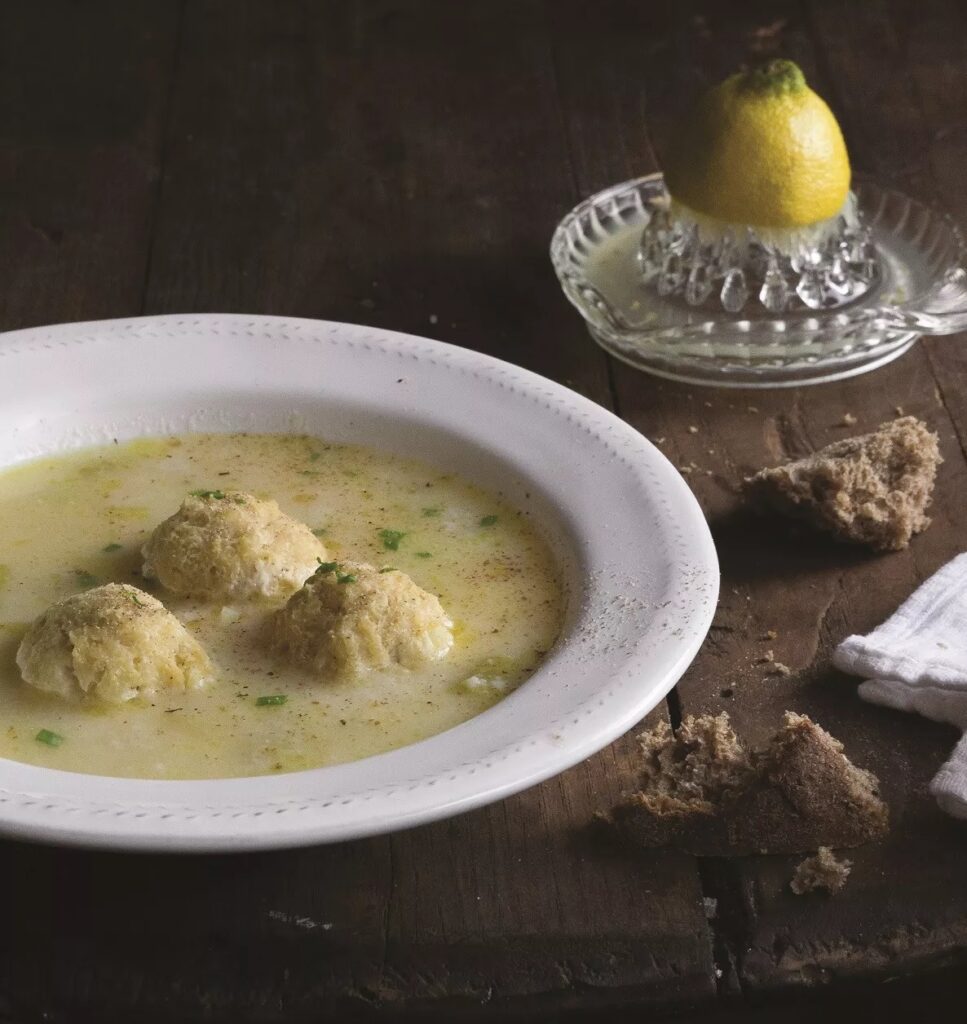With Athens being blanketed in snow, one cannot help but think of a perfect winter dish to have, and what could possible beat Yuvarlakia? This soup is one of the best comfort dishes where every spoonful has a rich and lemony taste.
Yuvarlakia belongs to the big family of meatballs which is popular all over the world. A global culinary cult with many versions, since every nation from Sweden to Morocco and from the US to China has adapted the recipe to their tastes.
We don't know when and where the first meatballs were made, however, wherever they started their career, when they arrived in the Ottoman kitchen, were a regular occupation, with dozens of variations.
Hence, we have many names left from the Turkish, such as kofte (meatballs), kıyma (minced meat) and round (yuvarlaki, i.e. spherical).
They are very easy to make since at the end of the 19th century the difficulty of making minced meat was overcome. In the past, the production of mincemeat required either the skillful hands of a cook who had to cut the meat at pace and speed, or the appropriate mechanical means of cutting.
Yuvarlakia is of course especially loved because of the perfect harmony of its ingredients: meat, egg-lemon sauce and rice. Rice was not a necessary ingredient in the first place. Konstantinidis in "Hellenic Cookery", in 1891, says that we can put grated bread instead of rice.
And after kneading the ingredients, wrap them "in finely chopped parsley, give them a round shape like small walnuts".
As for the fluffy meatballs that dip into the lemony soup, they are made from ground beef or lamb or a mix of these and before going into the pot they are breaded with flour, which helps bind the sauce.
In the variations of the recipe, we now have Yuvarlakia politika, with artichokes and egg lemon, a dish that was not widely preferred and passed into culinary oblivion, and the Red Yuvarlakia with tomato sauce, which is a more summery dish.
In essence, these are meatballs with rice, and if we remove the tomato sauce, the recipe is similar to the "Keftedes kadin butu" ("The feet of Hanumissa", loosely translated) of the Constantinople kitchen.
Except these are breaded with egg and fried. Of course, they also have their taste. But like the yuvarlakia, it doesn't have egg-lemon sauce! Besides, hese are breaded with egg and fried.
Yuvarlakia with chicken mince, trachana and egg lemon
1 hour and 15' | Easy
We may be used to cooking yuvarlakia in the traditional way, but this quick and nutritious soup has many variations, like the one here.
Ingredients for 4-6 people
For the yuvarlakia
400 gr. Minced chicken
100 g. sour trachana
1 onion, chopped
1 egg 1-2 tsp. tablespoon flour
1/4 tsp. sweet nutmeg
20 ml e.p. olive oil, salt, freshly ground pepper
For the soup
1,500 ml chicken or vegetable broth, homemade or refrigerated
1 leek, cut into rings
E.p. olive oil
100 gr. Trachana sour
20 g. butter
For the egg lemon sauce
2 eggs
1 lemon
Yuvarlakia procedure: Put all the ingredients in a bowl, season with salt and pepper and knead for about 3-4 minutes. Form the minced meat into meatballs, place them on a plate and, until you prepare the soup, put them in the refrigerator.
Soup: Pour the broth into a wide pot and once it boils, add the leeks, spring onions, salt, pepper and 20 ml of olive oil. Lower the heat and boil for 20 minutes. Add the trachana and simmer for another 10-15 minutes. Remove the pan from the heat and stir in the butter until it melts.
Egg lemon: In a bowl, beat the egg whites into a meringue with a hand mixer. Then incorporate the egg yolks. When the ingredients are combined, add the lemon and then little by little the juice of the soup, with a thread flow, constantly beating with an egg beater. When the egg mixture has burned, pour over the yuvarlakia and shake the pot in a circle to get it all over. Serve sprinkled with nutmeg.

Melissa Stoili is a columnist for Olive Magazine.
READ MORE: Constantinople Recipes: How they're cooked differently in Greece and Turkey.

